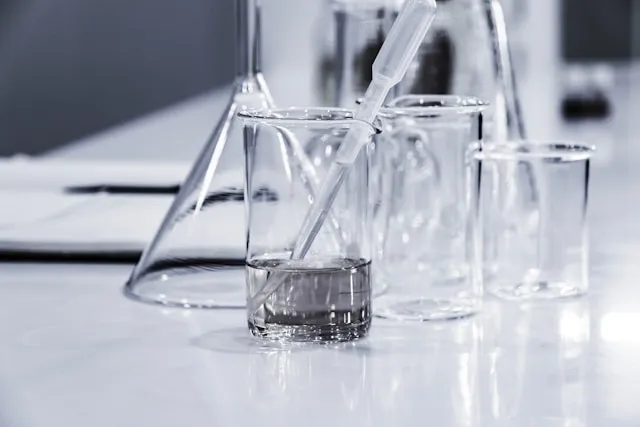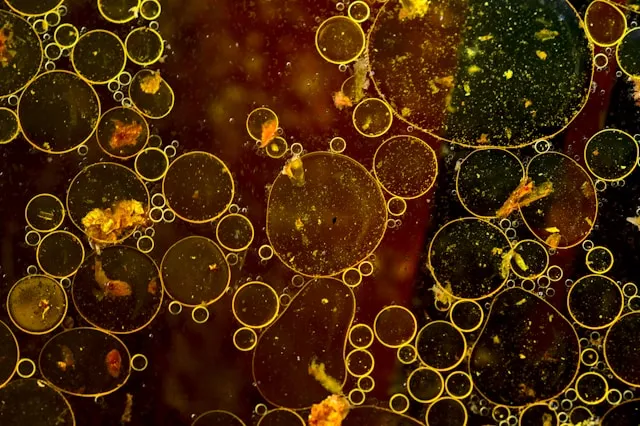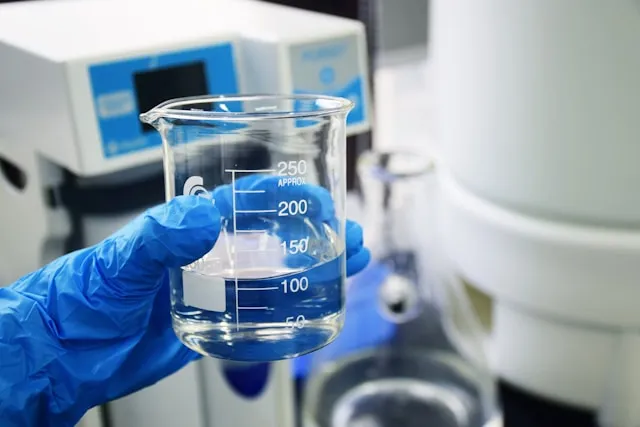
Oils and Grease in Water Testing
Ensure compliance, prevent system failures, and avoid costly blockages with professional oils and grease analysis.

Ensure compliance, prevent system failures, and avoid costly blockages with professional oils and grease analysis.
Testing for oils and grease in water is essential for maintaining the integrity of water systems and preventing long-term damage. These contaminants often stem from industrial processes, food service operations, vehicle maintenance, and oil refineries, but can be present in any water used for washing or processing.
Oils and grease can cause significant blockages in plumbing systems, reduce filtration efficiency, and impair treatment systems. They can also present serious environmental concerns when released into water bodies, disrupting aquatic life and contributing to pollution.
The presence of oils and grease in water can compromise compliance with regulatory standards, particularly for municipal wastewater systems and industries like food processing and manufacturing. In Ontario, municipal wastewater treatment regulations and industry-specific guidelines require regular monitoring of oil and grease concentrations to avoid system failures, ensure treatment effectiveness, and reduce environmental harm.
Our expert testing services provide comprehensive analysis of oils and grease levels in water. From sampling to lab analysis and detailed reporting, we help you identify potential problems early and take corrective actions to avoid costly damage, downtime, or fines.
Regular testing and monitoring for oils and grease ensures that your water systems stay functional, environmentally responsible, and in full compliance with local and industry-specific standards.

Unmonitored oils and grease in water systems don’t just cause plumbing issues—they pose serious environmental risks and potential fines from municipal authorities. When fats, oils, and grease (FOG) solidify, they can block sewer lines, leading to wastewater backups into buildings, health hazards, and damage to municipal infrastructure.
Industries like restaurants, food processing facilities, and automotive garages are especially at risk. Regular FOG testing helps identify hotspots, prevent buildup, and keep your plumbing and treatment systems running smoothly.
🛠️ Did You Know? Blockages caused by grease are one of the leading causes of sewer backups in Ontario municipalities, costing millions in annual repairs.
Municipalities across Ontario—including Toronto, Peel, Hamilton, and Ottawa—enforce strict sewer use bylaws that limit the amount of fats, oils, and grease that can be discharged into wastewater systems. Non-compliance can result in:
✔ Fines and enforcement orders
✔ Sewer surcharges or added fees
✔ Forced installation of grease interceptors or treatment upgrades
Our testing services ensure your facility meets local requirements, and we assist with reporting and documentation for inspections or audits. Whether you’re operating a commercial kitchen or a manufacturing plant, compliance with local sewer bylaws is essential to avoid penalties and maintain operations.


We provide a turnkey testing service for oils and grease that includes certified sampling, accredited laboratory analysis, and clear reporting. Our team works with commercial, industrial, and residential properties to make testing fast, accurate, and easy to act on.
🔹 Certified Technician Sampling – We collect samples from grease traps, sewer laterals, and discharge points using compliant methods.
🔹 Laboratory Analysis – Samples are tested in an accredited lab for total oil and grease concentration, meeting municipal and environmental reporting standards.
🔹 Detailed Compliance Reporting – We provide documentation you can use for regulatory submissions, including actionable recommendations if limits are exceeded.
Trust Canadian Water Compliance to help you stay ahead of compliance requirements and reduce costly plumbing and infrastructure risks.
Serving across Toronto, Mississauga, Brampton, London, Kitchener, Niagara, St. Catharines, Guelph, Waterloo, Collingwood, Barrie, Wasaga Beach, Midland, Huntsville, Gravenhurst, Minden, Oshawa, Peterborough, Kingston, Ottawa, Scarborough, Markham, Richmond Hill, Vaughan, Burlington, Etobicoke, Pickering, Ajax, Whitby, Caledon, Milton, Hamilton, Oakville and the surrounding areas.